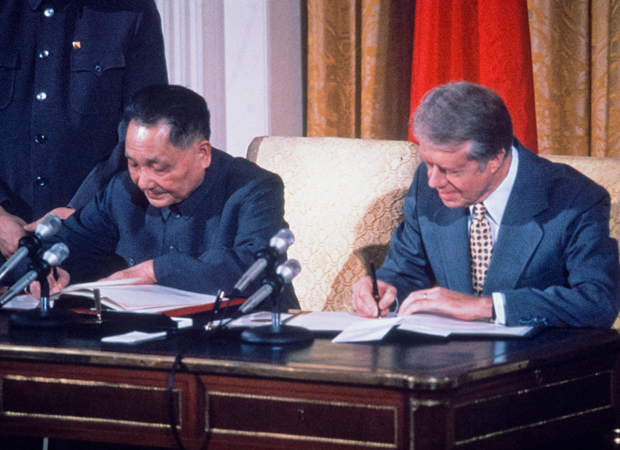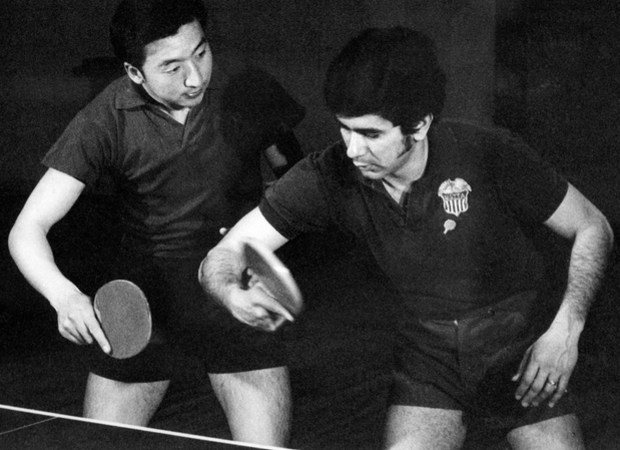
For Me, the Breakdown in U.S.-China Relations Is Personal
In my childhood, they were the Red Chinese. In my husband’s upbringing, we were the American imperialists. U.S.-China reconciliation after ping-pong diplomacy enabled us to meet and marry 40 years ago. Those of us with a foot in each world find...

Fateful Triangle
Madan argues that China’s influence on the U.S.-India relationship is neither a recent nor a momentary phenomenon. Drawing on documents from India and the United States, she shows that American and Indian perceptions of and policy toward China significantly shaped U.S.-India relations in three crucial decades, from 1949 to 1979. Fateful Triangle updates our understanding of the diplomatic history of U.S.-India relations, highlighting China’s central role in it; reassesses the origins and practice of Indian foreign policy and nonalignment; and provides historical context for the interactions between the three countries.

Kissinger on Kissinger
As National Security Advisor to Richard Nixon, Henry Kissinger transformed America’s approach to diplomacy with China, the USSR, Vietnam, and the Middle East, laying the foundations for geopolitics as we know them today. Nearly 50 years later, escalating tensions between the U.S., China, and Russia are threatening a swift return to the same diplomatic game of tug-of-war that Kissinger played so masterfully. Kissinger on Kissinger is a series of faithfully transcribed interviews conducted by the elder statesman’s longtime associate, Winston Lord, which captures Kissinger’s thoughts on the specific challenges that he faced during his tenure as the National Security Agency, his general advice on leadership and international relations, and stunning portraits of the larger-than-life world leaders of the era. The result is a frank and well-informed overview of U.S. foreign policy in the first half of the 1970s.

Normalization of Sino-American Relations: 40 Years Later
The spirited 2019 New Year’s speeches of Taiwan’s President Tsai Ing-wen and China’s President Xi Jinping have just reminded the world that, 40 years after the normalization of relations between the United States and China, the...

50 Years of Work on U.S.-China Relations
from Sinica PodcastIn this week’s episode of Sinica, we are proud to announce that we’re joining forces with SupChina. We’re also delighted that our first episode with our new partner is a...

Initial Impressions: Three First Trips to China, 1970s-1990s
from Sinica PodcastIn this show: dating tips for hooking up with your Marxist-Leninist thought instructor, advice on what modern music and seasonal vegetables to smuggle in from Hong Kong, the origins of China’s somewhat unorthodox driving customs, and instructions...
Chinese Shadows: Bureaucracy, Happiness, History
from New York Review of BooksIn the sixth century BC, at the time the Tso Chuan refers to, China’s social hierarchy had only ten degrees. We have progressed since then: the Maoist bureaucracy today has thirty hierarchical classes, each with specific privileges and...
Chinese Shadows
from New York Review of BooksTraveling Light
from New York Review of BooksWith the exception of Joseph Kraft’s short work, all the books on China mentioned here have been padded. Barbara Tuchman includes a fascinating historical essay. Galbraith has animadversions on San Francisco, Paris, TWA, and many other matters,...




